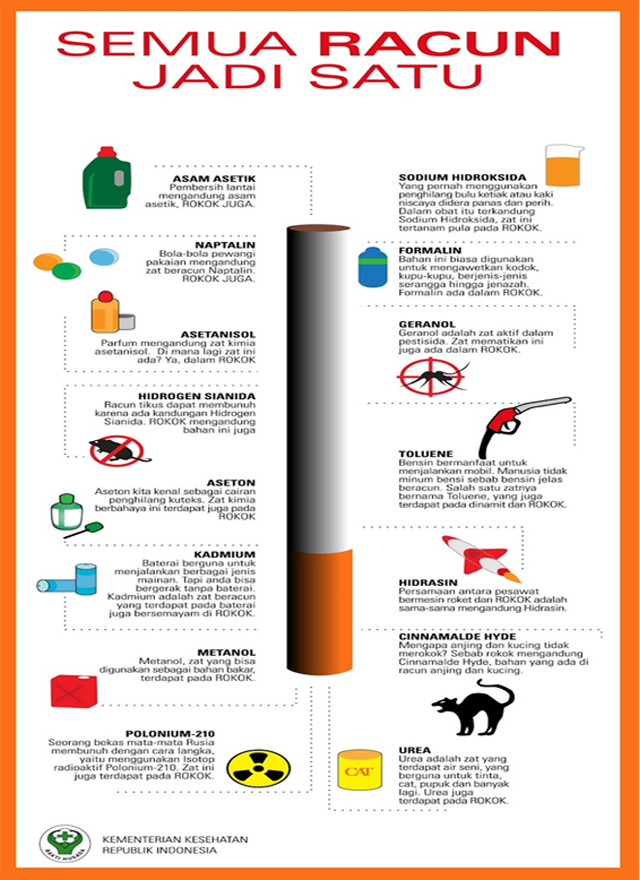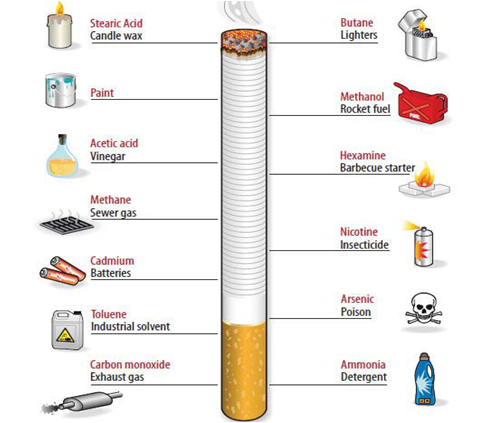The Hidden Dangers Lurking in Cigarettes

What if I told you there's a product readily available, legally sold, and socially accepted that contains over 7,000 chemicals, including at least 70 known carcinogens? You likely carry it in your pocket or see it used every day. This product is, of course, the cigarette. This seemingly innocuous roll of tobacco hides a cocktail of dangerous substances that wreak havoc on the human body.
Cigarettes deliver nicotine, a highly addictive substance, alongside a plethora of hazardous chemicals directly into your lungs and bloodstream. These chemicals, collectively referred to as harmful constituents of cigarettes, contribute to a range of debilitating and life-threatening diseases. Understanding the dangers of these substances is the first step towards making informed decisions about your health and the health of those around you.
The history of cigarette smoking dates back centuries, evolving from ceremonial practices to a widespread habit. The industrialization of cigarette production in the late 19th and early 20th centuries significantly increased accessibility and affordability, leading to a global epidemic of smoking-related illnesses. The realization of the devastating health consequences of smoking emerged gradually, with scientific research slowly unveiling the harmful chemicals in cigarettes and their link to diseases like lung cancer, heart disease, and emphysema.
The core issue with harmful cigarette constituents lies in their cumulative impact on the body. While some individual components might seem negligible in isolation, their combined effect creates a dangerous synergistic relationship, exponentially increasing the risk of developing serious health problems. For example, while nicotine is primarily responsible for the addictive nature of smoking, it's the cocktail of other chemicals, like tar, arsenic, and formaldehyde, that contribute significantly to the development of cancer and other life-threatening conditions.
These harmful chemicals work in insidious ways. Tar, a sticky residue formed during tobacco combustion, coats the lungs and airways, impeding their function and increasing the risk of respiratory infections. Carbon monoxide, another byproduct of burning tobacco, displaces oxygen in the bloodstream, reducing the body's oxygen supply and putting strain on the cardiovascular system. Other toxic components, like heavy metals and radioactive elements, accumulate in the body over time, causing cellular damage and increasing the risk of cancer development.
It's crucial to understand that there are *no* benefits to the harmful chemicals in cigarettes. Any perceived "benefits," such as stress relief or social connection, are associated with the act of smoking itself and can be achieved through healthier alternatives. The chemicals themselves offer no positive physiological or psychological effects.
Advantages and Disadvantages of Knowing about Harmful Cigarette Constituents
| Advantages | Disadvantages |
|---|---|
| Empowerment to make informed decisions about smoking. | Increased anxiety and worry about past smoking habits. |
| Motivation to quit smoking and improve health. | Potential for feeling overwhelmed by the complexity of the information. |
| Increased awareness of the risks of secondhand smoke. | Difficulty in processing the negative implications for loved ones who smoke. |
Frequently Asked Questions:
1. What are the most dangerous chemicals in cigarettes? Some of the most harmful include tar, nicotine, carbon monoxide, arsenic, formaldehyde, and benzene.
2. How do these chemicals damage the body? They damage cells, impair organ function, and contribute to the development of various diseases.
3. Can the damage from smoking be reversed? While some damage can be reversed after quitting, some effects may be permanent.
4. What are the long-term health risks of smoking? Long-term risks include lung cancer, heart disease, stroke, emphysema, and chronic bronchitis.
5. How can I quit smoking? There are various resources available, including nicotine replacement therapy, counseling, and support groups.
6. What are the benefits of quitting smoking? Quitting reduces the risk of smoking-related diseases, improves lung function, and enhances overall health.
7. Is vaping a safer alternative to smoking? While potentially less harmful, vaping still poses health risks and is not a safe alternative.
8. How can I protect myself from secondhand smoke? Avoid areas where people are smoking and encourage smokers to quit.
Tips for avoiding exposure to these harmful chemicals: Avoid all tobacco products and encourage others to do the same. Support smoke-free policies in public places. Educate yourself and others about the dangers of smoking and secondhand smoke. Seek help if you or someone you know wants to quit smoking.
In conclusion, the harmful constituents in cigarettes pose a significant threat to human health. Understanding the sheer number and variety of these chemicals, their mechanisms of action, and their devastating impact on the body is crucial for making informed decisions about tobacco use. By educating ourselves and others about the dangers of smoking, advocating for smoke-free environments, and supporting those who wish to quit, we can collectively work towards a future free from the devastating consequences of tobacco-related illnesses. The choice to avoid these harmful substances is a choice for a healthier, longer, and more fulfilling life. Taking action today can dramatically improve your future and the future of generations to come. Don't wait, choose health, choose life, choose to be free from the grip of these dangerous chemicals.
Captivated by curry manga a deep dive
Snapping into love webtoon chapter 32 a deep dive
Corvallis oregon city hall a hub of civic engagement













